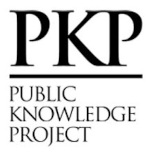Processos de Resiliência na Transição para Vida Adulta de Adolescentes com Deficiência
DOI:
https://doi.org/10.5020/23590777.rs.v21i3.e11481Palavras-chave:
adolescência, deficiência, resiliência, transiçãoResumo
É reconhecido na literatura o impacto que a resiliência tem no futuro de adolescentes com deficiência. Mais especificamente, tem-se discutido o significado deste conceito no contexto da transição da adolescência para a vida adulta. Isso porque os períodos de transição podem representar exposição a vulnerabilidade e riscos potenciais tendo em vista que exigem das pessoas uma reorganização estrutural e funcional. Algumas transições, como é o caso da entrada e da saída da adolescência são especialmente significativas e desafiantes. Assim, este estudo tem como objetivo discutir, a partir de aportes teóricos e estudos empíricos, como a resiliência favorece o enfrentamento das situações adversas ocorridas na vida de adolescentes nesta transição. Para tanto, são destacados achados da literatura, que trazem relatos de intervenções direcionados para o reconhecimento de potencialidades, desenvolvimento da autonomia e promoção de comportamentos habilidosos para o enfrentamento de situações dificultosas que possam se fazer presentes na etapa de transição da adolescência para a vida adulta. Tratam-se de propostas interventivas que favorecem processos de resiliência e que apontam para o fato de que ações dessa natureza devem abordar os contextos de vida dos adolescentes e pessoas a eles diretamente relacionadas de forma a garantir uma diminuição dos riscos e promover uma ativação dos recursos de apoio. São, no entanto, recomendadas novas investigações que se proponham a investigar de forma mais sistematizada, a viabilidade e eficácia de modelos interventivos a fim de que possam ser seguramente replicados e com isso se alcance um número mais expressivo de adolescentes com deficiência na sua diversidade sendo devidamente apoiados em seu momento de transição.
Downloads
Referências
Adibsereshki, N., Hatamizadeh, N., Sajedi, F., & Kazemnejad, A. (2019). The Effectiveness of a Resilience Intervention Program on Emotional Intelligence of Adolescent Students with Hearing Loss. Children (Basel, Switzerland), 6(3), 48. DOI: 10.3390/children6030048
Alvarez, A. P. E., & Carvalho, M. C. (2006). Novas estratégias no campo da inclusão social: moradia assistida e trabalho assistido. Psicologia para América Latina, (8).
Aumann, K., & Hart, A. (2009). Helping children with complex needs bounce back: Resilient therapy TM for parents and professionals. London: Jessica Kingsley Publishers.
Burt, K. B., & Masten, A. S. (2010). Development in the transition to adulthood: Vulnerabilities and opportunities. In J. E. Grant & M. N. Potenza (Eds.), Young adult mental health (pp. 5-18). New York: Oxford University Press.
Burt, K. B., & Paysnick, A. A. (2012). Resilience in the transition to adulthood. Development and Psychopathology, 24(2), 493-505. DOI: 10.1017/s0954579412000119
Canha, L., Simões, C., Owens, L., & Matos, M. G. (2015). Autodeterminação e qualidade de vida na transição de jovens com deficiência para a vida adulta. Psicologia da Criança e do Adolescente, 6 (2).
Canha, L., Simões, C., Owens, L., & Matos, M. G. (2016). Direct and indirect pathways to QoL in the transition to adulthood in youth and young adults with disabilities. Journal of Vocational Rehabilitation, 44, 149-162. DOI: 10.3233/JVR-150787
Cefai, C., Matsopoulos, A., Bartolo, P., Galea, K., Gavogiannaki, M., Zanetti, M. A., . . . & Lebre, P. (2014). A Resilience Curriculum for Early Years and Elementary Schools in Europe: Enhancing Quality Education. Journal of Croatian Education, 16(2), 11-32.
Cefai, C., Miljević-Riđički, R., Bouillet, D., Ivanec, T. P., Milanovoć, M., Matsopoulos, A., & Erikson, C. (2015). RESCUR: Surfing the waves. A Resilience Curriculum for Early Years and Primary Schools - A Parent’s Guide. Msida: Centre for Resilience and Socio-Emotional Health, University of Malta.
Cheak-Zamora, N. C., Teti, M., & First, J. (2015). “Transitions are Scary for our Kids, and They’re Scary for us”: Family Member and Youth Perspectives on the Challenges of Transitioning to Adulthood with Autism. Journal of Applied Research in Intellectual Disabilities, 18(6), 548-560. DOI: 10.1111/jar.12150
Cicchetti, D. (2010). Resilience under conditions of extreme stress: A multilevel perspective. World Psychiatry, 9(3), 145-154.
Collishaw, S., Pickles, A., Messer, J., Rutter, M., Shearer, C., & Maughan, B. (2007). Resilience to adult psychopathology following childhood maltreatment: Evidence from a community sample. Child Abuse & Neglect, 31(3), 211-229. DOI: 10.1016/j.chiabu.2007.02.004
Cordeiro, M. P., Scoponi, R. S., Ferreira, S. L., & Vieira, C. M. (2007). Deficiência e teatro: arte e conscientização. Psicologia: Ciência e Profissão, 27(1), 148- 155. DOI: 10.1590/S1414-98932007000100012
Galway, T. M., & Metsala, J. L. (2011). Social cognition and its relations to psychosocial adjustment in children with nonverbal learning disabilities. Journal of Learning Disabilities, 44, 33-49. DOI: 10.1177/0022219410371680
Gauthier-Boudreault, C., Couture, M., & Gallagher, F. (2018). How to facilitate transition to adulthood? Innovative solutions from parents of young adults with profound intellectual disability. Journal of Applied Research in Intellectual Disabilities, 31(S2), 215-223. DOI: 10.1111/jar.12394
Graber, J. A., & Brooks-Gunn, J. (1996). Transitions and turning points: Navigating the passage from childhood through adolescence. Developmental Psychology, 32(4), 768-776. DOI: 10.1037/0012-1649.32.4.768
Hall, A. M., & Theron, L. C. (2016). Resilience processes supporting adolescents with intellectual disability: A multiple case study. Intellectual and Developmental Disabilities, 54(1), 45-62. DOI: 10.1352/1934-9556-54.1.45
Hart, A., Heaver, B., Brunnberg, E., Sandberg, A., MacPherson, H., Coombe, S., & Kourkoutas, E. (2014). Resilience building with disabled children and young people: a review and critique of the academic evidence base. International Journal of Child, Youth and Family Studies, 5(3), 394-422. DOI: 10.18357/ijcyfs.harta.532014
Harwick, R. M., Lindstrom, L. E., & Unruh, D. (2017). In their own words: Overcoming barriers during the transition to adulthood for youth with disabilities who experienced foster care. Children and Youth Services Review, 73, 338-346, DOI: 10.1016/j.childyouth.2017.01.011
Henninger, N. A., & Taylor, J. L. (2014). Family perspectives on a successful transition to adulthood for individuals with disabilities. Intellectual and Developmental Disabilities, 52(2), 98-111. DOI: 10.1352/1934-9556-52.2.98
Holloway, J., Lydon, H., & Walsh, E. (2020). Chapter 16 – PREP4 Work: A social skills intervention to prepare adults with autism spectrum disorder and intellectual disabilities to access the workplace. In D. W. Nangle, C. A. Erdley & R. A. Schwartz-Mette (Eds.), Social Skills Across the Life Span (pp. 311-327). local: Academic Press.
Jurado, M. M. M., Pérez-Fuentes, M. D. C., Martín, A. B. B., Salvador, R. M. P., & Linares, J. J. G. (2019). Analysis of the relationship between emotional intelligence, resilience, and family functioning in adolescents’ sustainable use of alcohol and tobacco. Sustainability, 11(10), 2954. DOI: 10.3390/su11102954
Kim, K. M., & Fox, M. H. (2006). Moving to a holistic model of health among persons with mobility disabilities. Qualitative Social Work, 5, 470-488. DOI: 10.1177/1473325006070290
King, G., Cathers, T., Brown, E., & MacKinnon, E. (2003). Turning points: emotionally compelling life experiences. In G. King, E. Brown & L. K. Smith (Eds.), Resilience: learning from people with disabilities and the turning points in their lives (pp.31-88). Westport: Praeger.
King, G., Cathers, T., Polgar, J. M., MacKinnon, E., & Havens, L. (2000). Success in life for older adolescents with cerebral palsy. Qualitative Health Research, 110, 734-749.
King, G., Willoughby, C., Specht, J. A., & Brown, E. G. (2006). Social support processes and the adaptation of individuals with chronic disabilities. Qualitative Health Research, 16(7), 902-925. DOI: 10.1177/1049732306289920
Leebens, P. K., & Williamson, E. D. (2017). Developmental psychopathology: Risk and resilience in the transition to young adulthood. Child and Adolescent Psychiatric Clinics of North America, 26(2), 143-156. DOI: 10.1016/j.chc.2016.12.001
Libório, R. M. C., Castro, B. M., Ferro, E. G., & Souza, T. S. (2015). Resiliência e Processos Protetivos de Adolescentes com Deficiência Física e Surdez Incluídos em Escolas Regulares. Revista Brasileira de Educação Especial, 21(2), 185-198. DOI: 10.1590/S1413-65382115000200002
Lindsay, S., Lamptey, D. L., Cagliostro, E., Srikanthan, D., Mortaji, N., & Karon, L. (2019). A systematic review of post-secondary transition interventions for youth with disabilities. Disability and Rehabilitation, 41(21), 2492-2505. DOI: 10.1080/09638288.2018.1470260
Lindstrom, L., Doren, B., & Miesch, J. (2011). Waging a living: Career development and long-term employment outcomes for young adults with disabilities. Exceptional Children, 77(4), 423-434. DOI: 10.1177/001440291107700403
Mannino, J. E. (2015). Resilience and Transitioning to Adulthood among Emerging Adults with Disabilities. Journal of Pediatric Nursing, 30(5), e131-e145. DOI: 10.1016/j.pedn.2015.05.017
Masten, A. S. (2018). Resilience theory and research on children and families: Past, present, and promise. Journal of Family Theory & Review, 10(1), 12-31. DOI: 10.1111/jftr.12255
Masten, A., & Tellegen, A. (2012). Resilience in developmental psychopathology: Contributions of the project competence longitudinal study. Development and Psychopathology, 24, 345-361. DOI: 10.1017/S095457941200003X
Matos, M. G. (2002). A saúde dos adolescentes portugueses: Quatro anos depois. Lisboa: Faculdade de Motricidade Humana.
Maxey, M., & Beckert, T. E. (2017). Adolescents with Disabilities. Adolescent Research Review, 2, 59-75. DOI: 10.1007/s40894-016-0043-y
Murray, C. (2003). Risk factors, protective factors, vulnerability, and resilience a framework for understanding and supporting the adult transitions of youth with high-incidence disabilities. Remedial and Special Education, 24(1) 16-26. DOI: 10.1177/074193250302400102
Pavlović, M., Žunić-Pavlović, V., & Glumbić, N. (2019). Relation between resilience and cigarette/alcohol use in adolescents with mild intellectual disability. Vojnosanitetski pregled, 76(3), 259-265. DOI: 10.2298/VSP170408086P
Raghavan, R. (2015). Resilience of Children and Young People with Intellectual Disabilities. Journal of Intellectual Disability Research, 59, 82-83.
Rutter, M. (1987). Psychosocial resilience and protective mechanisms. American Journal of Orthopsychiatry, 57(3), 316-331. DOI: 10.1111/j.1939-0025.1987.tb03541.x
Rutter, M. (1993). Resilience: Some conceptual considerations. Journal of Adolescent Health, 14, 626-631.
Rutter, M. (2012). Resilience as a dynamic concept. Development and Psychopathology, 24, 335-344. DOI: 10.1017/s0954579412000028
Rutter, M. (2013). Annual Research Review: Resilience – clinical implications. Journal of Child Psychology and Psychiatry, 54(4), 474-487. DOI: 10.1111/j.1469-7610.2012.02615.x
Scheffers, F., van Vugt, E., & Moonen, X. (2020). Resilience in the face of adversity in adults with an intellectual disability: A literature review. Journal of Applied Research in Intellectual Disabilities, 33(5), 828-838. DOI: 10.1111/jar.12720
Sivadasan, L., & Narayanan, A. (2016). Factors of Resilience among Physically Disabled: An Interpretative Phenomenological Analysis. Indian Journal of Positive Psychology, 7(1) 113-118.
Shiner, R. L., & Masten, A. S. (2012). Childhood personality as a harbinger of competence and resilience in adulthood. Development and Psychopathology, 24, 507-552. DOI: 10.1017/S0954579412000120
Simões, C., Matos, M. G., & Morgan, A. (2015). Facing the adversity: The role of internal assets on well-being in adolescents with special needs. Spanish Journal of Psychology, 18(e56), 1-14. DOI: 10.1017/sjp.2015.41
Simões, C., Matos, M. G., Ferreira, M., & Tomé, G. (2010). Risco e resiliência em adolescentes com necessidades educativas especiais: desenvolvimento de um programa de promoção da resiliência na adolescência. Psicologia, Saúde & Doenças, 11(1), 101-119.
Simões, C., Matos, M. G., Melo, P. L., & Antunes, M. (2014). The impact of cumulative risk on adolescents: How it Acts on Different Outcomes and Which Assets Can Moderate it. In M. T. S. Ionescu & S. Cace (Ed.), Proceedings of the Second World Congress on Resilience - From Person to Society (pp. 101-106). Bologna: Medimond International Proceedings.
Simões, C., Matos, M. G., Tomé, G., & Ferreira, M. (2008). Impact of negative life events on positive health in a population of adolescents with special needs, and protective factors. Journal of Cognitive and Behavioral Psychotherapies, 8(1), 53-65.
Simões, C., Lebre, P., & Santos, A. C. (2016). Resiliência em ação: RESCUR, Currículo Europeu para a resiliência. OMNIA, 5, 35-43. DOI: 10.23882/OM5-2016-10-03
Specht, J. A., Polgar, J. M., & King, G. (2003). How We Got Here. In G. King, E. G. Brown & L. K. Smith (Eds.), Resilience, learning from people with disabilities and the turning points in their lives (pp. 7-30). Westport: Praeger Publishers.
Tavares, M. L. D. O., Reinaldo, A. M. D. S., Villa, E. A., Henriques, B. D., & Pereira, M. O. (2017). Perfil de adolescentes e vulnerabilidade para o uso de álcool e outras drogas. Rev. enferm. UFPE on line, 3906-3912.
Thompson, C., Bölte, S., Falkmer, T., & Girdler, S. (2018). To be understood: Transitioning to adult life for people with Autism Spectrum Disorder. PLoS One, 13(3), e0194758. DOI: 10.1371/journal.pone.0194758
Ungar, M. (2005). Pathways to resilience among children in child welfare, corrections, mental health and educational settings: Navigation and negotiation. Child and Youth Care Forum, 34(6), 423-444. DOI: 10.1007/s10566-005-7755-7
Ungar, M. (2008). Resilience across cultures. British Journal of Social Work, 38(2), 218-235. DOI: 10.1093/bjsw/bcl343
Ungar, M. (2015). Working with Children and Youth with Complex Needs: 20 Skills to build resilience. New York: Routledge.
Velez Intriago, J. C., & Velez Intriago, J. W. (2021). Resiliencia en los empleados con discapacidad de la Universidad Técnica de Manabí. Revista Ecuatoriana De Psicología, 4(8), 40-50. DOI: 10.33996/repsi.v4i8.50
Werner, E. E., & Smith, R. S. (2001). Journeys from childhood to midlife: Risk, resilience, and recovery. Ithaca: Cornell University Press.
Winn, S., & Hay, I. (2009). Transition from school for youths with a disability: issues and challenges. Disability & Society, 24(1), 103-115. DOI: 10.1080/09687590802535725
Wong, B. Y. L. (2003). General and specific issues for researchers’ consideration in applying the risk and resilience framework to the social domain of learning disabilities. Learning Disabilities Research & Practice, 18, 68-76. DOI: 10.1111/1540-5826.00060
Downloads
Publicado
Como Citar
Edição
Seção
Licença
Copyright (c) 2021 Camélia Santina Murgo, Lucia Maria Canha, Maria Celeste Rocha Simões, Ana Paula Lebre Santos Branco Melo

Este trabalho está licenciado sob uma licença Creative Commons Attribution-NonCommercial-ShareAlike 4.0 International License.
Para autores: Cada manuscrito deverá ser acompanhado de uma “Carta de submissão” assinada, onde os autores deverão declarar que o trabalho é original e inédito, se responsabilizarão pelos aspectos éticos do trabalho, assim como por sua autoria, assegurando que o material não está tramitando ou foi enviado a outro periódico ou qualquer outro tipo de publicação.
Quando da aprovação do texto, os autores mantêm os direitos autorais do trabalho e concedem à Revista Subjetividades o direito de primeira publicação do trabalho sob uma licença Creative Commons de Atribuição (CC-BY), a qual permite que o trabalho seja compartilhado e adaptado com o reconhecimento da autoria e publicação inicial na Revista Subjetividades.
Os autores têm a possibilidade de firmar acordos contratuais adicionais e separados para a distribuição não exclusiva da versão publicada na Revista Subjetividades (por exemplo, publicá-la em um repositório institucional ou publicá-la em um livro), com o reconhecimento de sua publicação inicial na Revista Subjetividades.
Os autores concedem, ainda, à Revista Subjetividades uma licença não exclusiva para usar o trabalho da seguinte maneira: (1) vender e/ou distribuir o trabalho em cópias impressas ou em formato eletrônico; (2) distribuir partes ou o trabalho como um todo com o objetivo de promover a revista por meio da internet e outras mídias digitais e; (3) gravar e reproduzir o trabalho em qualquer formato, incluindo mídia digital.
Para leitores: Todo o conteúdo da Revista Subjetividades está registrado sob uma licença Creative Commons Atribuição (CC-BY) que permite compartilhar (copiar e redistribuir o material em qualquer suporte ou formato) e adaptar (remixar, transformar e criar a partir do material para qualquer fim) seu conteúdo, desde que seja reconhecida a autoria do trabalho e que esse foi originalmente publicado na Revista Subjetividades.




















